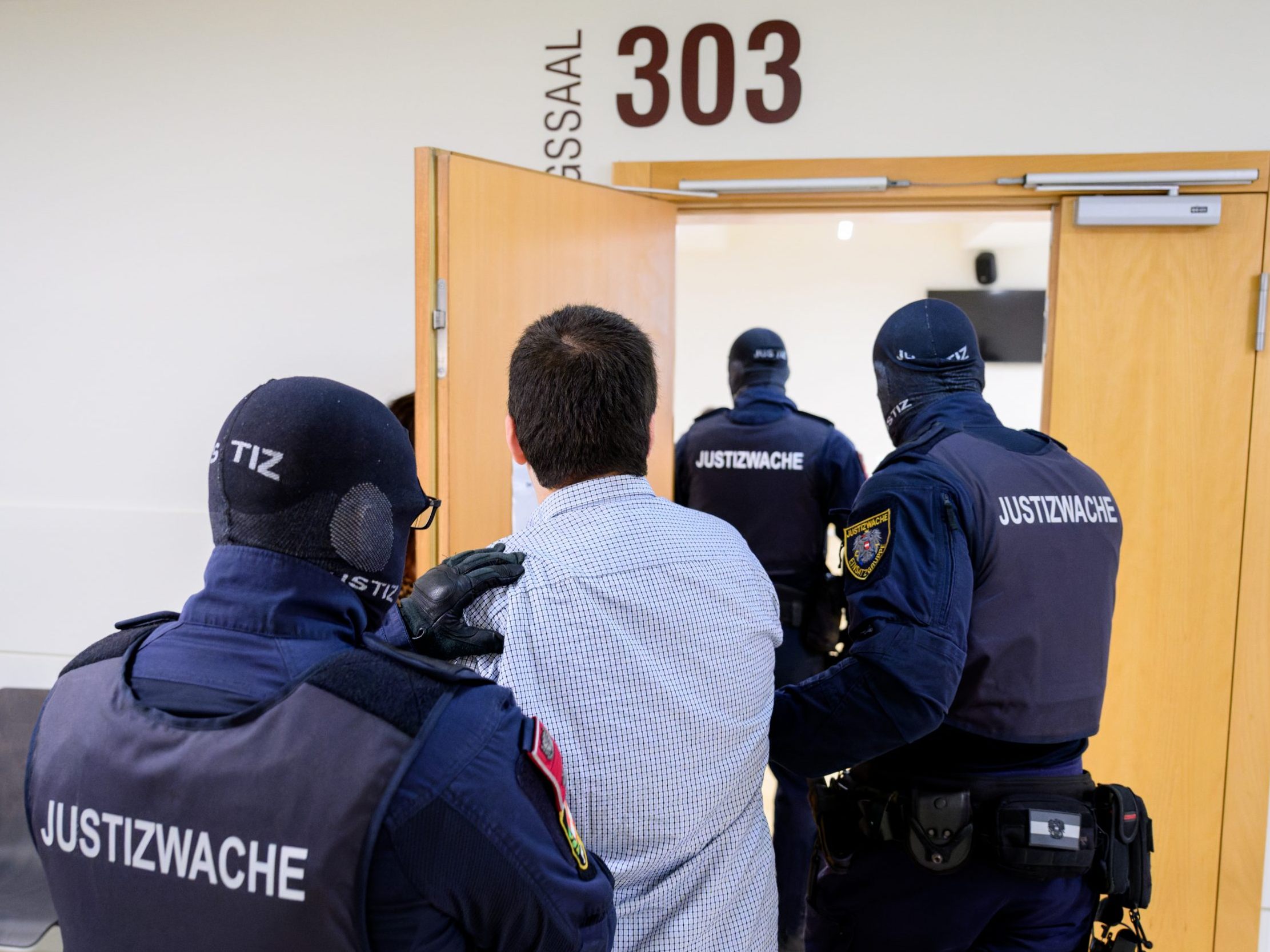Repeated Verdict Against 18-Year-Old After Terror Plan Against Vienna Central Station

The 18-year-old, who was active for IS again after his release in May 2024, was sentenced to two years in prison. The verdict for membership in a terrorist and criminal organization is not yet legally binding. The defendant accepted the verdict, but the prosecutor appealed, considering the sentence too low given the possible five years. Additionally, he filed a complaint because the court did not revoke the conditional part of the sentence of 16 months, but only extended the probation period to five years.
18-Year-Old Engaged in IS Propaganda Again One Day After Release
After his conviction in April 2024 to two years of partially suspended imprisonment, the 18-year-old engaged in IS propaganda again when he was released. The court had instructed the young man, who had not carried out his attack plans at the last moment and left the main train station without incident, to undergo a deradicalization program and continue his psychotherapy. Both had obviously been ineffective. "A lot of money and resources were invested to get him out of this setting. At the end of the day, it was completely ineffective, unfortunately," the prosecutor noted.
The defendant was released from prison on May 10, 2024, after serving the unconditional part of his sentence of eight months, including pre-trial detention. According to the current indictment, he began spreading IS propaganda material again the very next day (sic!). He aimed to strengthen like-minded individuals and recruit new members, the prosecutor remarked. In November, German intelligence became aware of the unrepentant IS supporter’s activities and informed the Directorate of State Protection and Intelligence Service (DSN). The then 17-year-old was arrested and subsequently taken into pre-trial detention.
Before a jury, the now 18-year-old pleaded guilty and made a comprehensive confession. "If he no longer marches to the main train station with a knife to stab people, but instead sends Nasheeds (religious chants, ed.), then that shows a much lower criminal intensity," said his defense lawyer Rudolf Mayer. The defendant himself did not answer any questions. He exercised his right to remain silent.
For Prosecutor "A Certain Special Case"
The prosecutor described the 18-year-old as "a certain special case." Although he had "voluntarily withdrawn from his attack plans at the main train station nearly two years ago," he had not renounced IS ideology until his recent arrest, despite all state efforts, and had spread "martial videos of IS hostage executions" and Nasheeds via social media. With this propaganda, he had "encouraged others in the sense of IS" and aimed to recruit young people for IS.
From the defender's perspective, the IS "propaganda machine" took hold of his client. It "fills young people who are insecure and feel excluded with life," said Mayer. His client had been bullied, and by turning to Allah, he "mattered" and gained recognition among like-minded individuals. He was infected with the IS ideology: "He is not yet completely weakened and cured of the infection." However, the 18-year-old is not "extremely dangerous."
"Social Isolation" and "Unemployment" Caused New Turn to IS
As revealed by the reports from probation and juvenile court assistance, which were read at the end of the trial, the then 17-year-old was accommodated in a shared apartment after his release from prison in spring 2024, provided by an association that focuses on the resocialization of offenders. There, the boy felt "like in prison" because he was only allowed to leave the shared apartment for one hour a day. He was bored and occupied himself with his phone, where he came across IS propaganda material. This topic "did not let him go." His renewed extremist activity was due to "social isolation and unemployment."
Bullying Experiences in the Detention Center
In the Josefstadt detention center, the 18-year-old is serving his pre-trial detention in the adult section. He had bullying experiences in the juvenile section. "There are so many IS fans. I am not one of the tough ones, so I always get beaten," he reported to a supervisor, after which he was internally relocated. The 18-year-old seems to have integrated well into the adult section. There are no reports of misconduct.
As the boy informed the juvenile court assistance, he experiences "the turn to religion" positively in prison. He prays regularly, but now lives Islam "normally" and wants nothing more to do with IS, he emphasized in conversations with the juvenile court assistance. However, during an assessment as part of the deradicalization program, which the 18-year-old continues to undergo, it emerged that in the risk assessment of 13 possible so-called red flags, six factors still indicate that the young man could pose a potential danger.
When asked about this, defender Mayer emphasized after the trial that his client was "also receptive to Western values and ideas" during the brief half-year he spent in freedom last year. For example, the young man visited a brothel, Mayer told the APA.
(APA/Red)
This article has been automatically translated, read the original article here.





